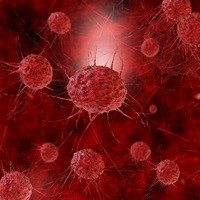Background
Project: APO-SYS
Cancer and AIDS have compromised the quality of life for millions of people around the globe, and, despite recent breakthroughs, they still represent major challenges for the medical and scientific community. In 2011 alone, an estimated 3.8 million Europeans developed cancer and 2.1 million of them lost their lives as a result. At the end of the same year, it was estimated that around 940,000 people in Europe were living with AIDS, while scientists observe an alarming tendency for increased transmission in several countries.

Cancer and AIDS have compromised the quality of life for millions of people around the globe, and, despite recent breakthroughs, they still represent major challenges for the medical and scientific community. In 2011 alone, an estimated 3.8 million Europeans developed cancer and 2.1 million of them lost their lives as a result. At the end of the same year, it was estimated that around 940,000 people in Europe were living with AIDS, while scientists observe an alarming tendency for increased transmission in several countries.
Now, the successes of a European Union (EU)-funded research project, called APO-SYS, offer renewed hope to patients and their families. APO-SYS was an integrated project with 23 partner organisations from ten EU countries, plus Israel and Switzerland, which ran from February 2008 until February 2012. The Europe-wide consortium of experimental biologists, biomathematicians, biostatisticians, computer scientists and clinical researchers teamed up to further investigate and understand the phenomenon of “apoptosis” in human diseases, especially cancer and AIDS.
Apoptosis is the scientific term coined to describe the genetically programmed process of cell death, which is inherent in every cell of the body and in various multicellular organisms.
Apoptosis is also essential for the maintenance of a correct amount of cells in tissues. In young, normal organisms, billions of cells are dying daily.
“In addition to its importance as a biological phenomenon, defective apoptotic processes have been involved in an extensive variety of diseases. Excessive apoptosis causes atrophy or results in many neurological disorders, such as Alzheimer’s, Parkinson’s or Huntington’s diseases, or in immunological disorders, such as AIDS,” says APO-SYS project coordinator, Prof. Boris Zhivotovsky, from the Institute of Environmental Medicine, Karolinska Institutet, Sweden. “On the other hand, an insufficient apoptosis results in uncontrolled cell proliferation and might lead to tumour development. Importantly, during cancer chemo- and radiotherapy target cells are dying primarily by inducing apoptosis,” he adds.
The APO-SYS project aimed to understand how apoptosis can be modulated, so that scientists can control which cells live and which undergo programmed cell death, especially in AIDS and cancer.
An expert team of researchers from different scientific disciplines allowed partners to integrate their knowledge (multidisciplinary approach), to build a computational model describing interactions between the components of biological systems,. Then, using modern high-throughput experimental techniques the APO-SYS consortium collected quantitative data for validation of the model. This allowed the APO-SYS team to address the question of how modulation of apoptosis can be used in the treatment of cancer and AIDS.
After four years of research, the team of APO-SYS managed to detect novel biomarkers and targets with anti-tumour potential, as well as new strategies for combined treatment of tumours and HIV. Scientists involved in the project also suggested optimised predictive parameters for these two diseases, and developed new guiding strategies for the improvement of existing treatments.
An impressive 512 peer-reviewed publications have already appeared in scientific journals, based on the results of the APO-SYS, and the list is still growing, according to Professor Zhivotovsky. “The interdisciplinary nature of the project and the need to recruit a multinational team of renowned researchers meant that its implementation would not have been possible without the EU support,” Professor Zhivotovsky says.
This innovation was made possible by Israel’s continued participation in the official Horizon 2020 fund, managed in Israel by ISERD part of The Israel Innovation Authority (Formerly the Office of the Chief Scientist and MATIMOP). The initiative has taken Israeli R&D to the next level with the help of ground-breaking collaboration between scientists in Israel and Europe, as well as essential funding and support.
Project details
Project acronym: APO-SYS
Participants: Sweden (Coordinator), Finland, Germany, Austria, Israel, Denmark, Italy, France, Switzerland, Ireland, Belgium, United Kingdom
Project FP7 200767
Total costs: €14 780 447
EU contribution: €11 000 000
Duration: February 2008 – January 2012
